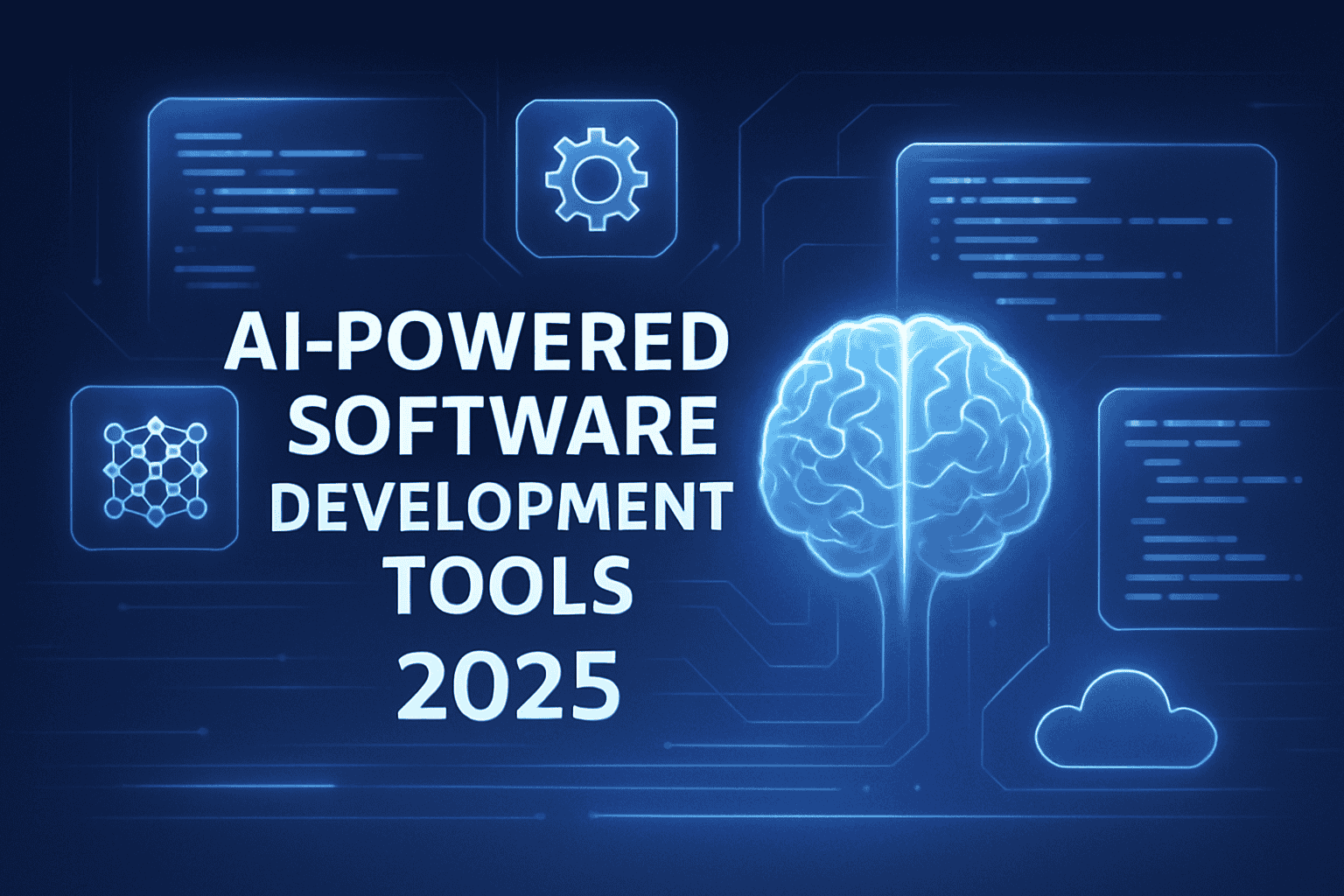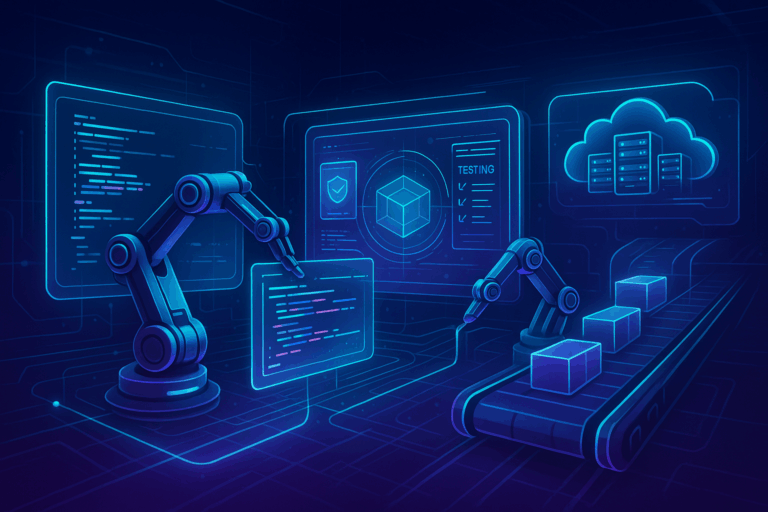top AI-powered software development tools
have become essential in 2025, helping developers code faster, optimize quality, and automate repetitive tasks. Here are some leading tools reshaping the landscape:
1. GitHub Copilot
- Overview: AI pair programmer developed by GitHub & OpenAI providing real-time, context-aware code completions and suggestions.
- Key Features: Supports 14+ languages, automated test generation, security suggestions, pull request summaries, and integrated chat support.
- Use Cases: Suitable for rapid coding, debugging, and documentation.
- Pricing: Free tier with usage limits, paid plans start at $10/month.
- Learn More: GitHub Copilot
2. Qodo
- Overview: Full lifecycle AI coding assistant covering code generation, automated testing, AI code reviews, and risk analysis.
- Key Features: Intelligent code suggestions, multi-IDE support (VS Code, JetBrains), test coverage improvement, automated PR reviews.
- Unique Selling Point: SOC 2 security compliance for enterprise use.
- Learn More: Qodo AI Coding Assistant
3. Cursor IDE
- Overview: AI-native IDE offering multi-file code generation, real-time codebase understanding, and smart rewrites optimizing developer workflow.
- Key Features: Drag & drop image support for GPT-4o, natural language commands, and project-wide context awareness.
- Strength: High-speed code refactoring and debugging.
- Learn More: Cursor IDE
4. Windsurf
- Overview: AI-powered development environment built on VS Code, includes multi-LLM integration and collaboration features.
- Key Features: Cascade AI assistant with GPT-4o, Claude, DeepSeek LLMs; Package management, web search integration.
- Ideal For: Developers wanting a full AI-enhanced IDE experience.
- Pricing: Free limited plan, paid plans start at $15/month.
- Learn More: Windsurf IDE
5. Gemini Code Assist
- Overview: Google’s AI-powered tool focused on code quality with advanced refactoring and bug detection capabilities.
- Key Features: Supports multiple programming languages, deep semantic analysis.
- Benefit: Improves code robustness and maintainability.
- Learn More: Gemini by Google
6. Tabnine
- Overview: AI code autocompletion tool powered by large language models to reduce typing errors and boost coding speed.
- Key Features: Cross-IDE support, custom model training, real-time code prediction.
- Learn More: Tabnine
7. Devin Autonomous AI Engineer
- Overview: Autonomous AI system capable of independently designing, executing, and managing software development workflows.
- Benefit: Automates entire coding and testing cycles, boosting overall productivity.
- Learn More: Devin AI
8. AI-Driven UI/UX Generators
- Capabilities: Automatically create design wireframes, build user interfaces, and simulate user experience testing using AI.
- Benefits: Speeds up design-to-code processes and strengthens product usability.
9. Automated AI Testing Suites
- Functions: Generate unit tests, simulate real-world conditions, and identify hidden bugs early, ensuring high software quality.
- Use Cases: Critical for enterprises with rigorous compliance and security needs.
10. Prompt-Based Software Engineering Tools
- Features: Allow developers to instruct AI in plain language to generate, refine, or debug code snippets instantly.
- Benefit: Lowers the barrier for software development, democratizing coding for non-experts.
Each of these tools is shaping the software development process by reducing manual coding workload, improving accuracy, and fostering innovation. Businesses and developers leveraging these AI tools gain faster time-to-market, higher-quality products, and a distinct competitive advantage.
learn about us


